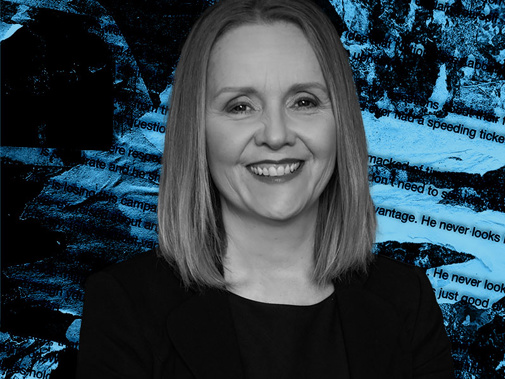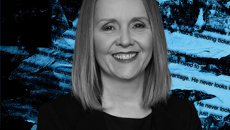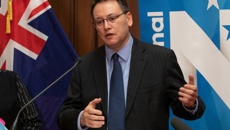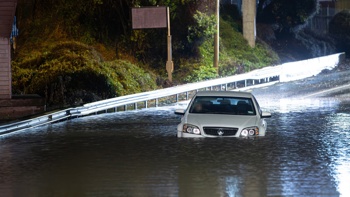
When the Rolling Stones announced their 26th studio album Hackneyed Diamonds it sent a message to their generation to rock on and not go gentle into that good night. All in their 80s, traditionally a time for quiet contemplation, they put the rock into rocking chair and unapologetically signaled their intention to rage against the dying of the light. Dylan Thomas would have approved.
But when Mick Jagger turned 80 years old this year, he’d have no inkling how he’d become the poster boy for policy discussions about how to fix aged care for his rock ‘n’ roll generation. His milestone birthday marked that his peer group, first described in 1963 as ‘Baby Boomers’, were hitting life’s home straight.
Around the globe in developed countries birth rates are down and populations are ageing. It’s been one of the most bankable and predictable demographic trends for marketers and policy developers alike.
The problem for New Zealand is that we’ve done nothing to prepare for our fastest growing segment, the over 80s. Currently the government, Te Whatu Ora and the opposition have no plan to deal with the baby boom aged care bump. No plan.
Here are some numbers to give perspective. By the of this decade there will 84,000 more New Zealanders over the age of 80 than today, and by 2040 there will be 212.000. Many will live well at home, but many thousands of New Zealanders will become too frail and not able to live safely at home.
The increased number of older New Zealanders in public hospitals is having a big impact already. Hawkes Bay Geriatrician Dr Tim Frendin has watched the increased pressure on the health system from the front line seeing rising emergency department waiting times, increased thresholds for operations and health care worker burnout.
The structural change to our country has been dramatic and Dr Frendin has done the math: in 1980 1 in 3 Kiwis died before they were 65 and 1 in 7 died after they were 85. By 2016 1 in 6 Kiwis died before 65 years and 1 in 3 died after 85. By 2060 it’s predicted that only 1 in 25 New Zealanders will die before the age of 65 and at least 7 out of 10 of us will live to over 85 years.
This a tectonic shift in the way New Zealanders will live their lives and it’s a reminder of how long some will have to support themselves financially after retirement.
While Mick Jagger will have every resource to support the next phase in his life, the options for frail antipodean Baby Boomers relying solely on their superannuation will be spartan, that’s if an affordable room can be found at all in local towns and regions.
Because government aged care contracts have not kept pace with inflation and do not cover the full cost of care, many providers have shut down facilities and wards - over 1000 beds so far and hundreds more to close this year. Some care suites are being built, but they are much more compact than previous designs and require additional payments. The gaps between the haves and the have nots will continue to widen.
Te Whatu Ora’s demand planner predicts New Zealand will be short at least 13000 beds by the end of the decade and bed occupancy percentages will surpass 230% in some regions. Bed occupancy above 100% is of course impossible given only one person can sleep in a bed, but the inflated predicted occupancy figures are just another way of representing shortages and the resulting stressful waiting lists for care.
So far the only progress is that Te Whatu Ora has commissioned consultants to do another review. This follows the last review completed by PWC in 2019, which followed many other reviews including the 2010 State of Aged Care report done by MPs Sue Kedgley and Winnie Laban. All reviews done in the last few decades conclude the same, that aged care contracts do not cover the full cost of care, that not enough beds are being built for growing demand, and the ones who will miss out will be poorer New Zealanders.
Unfortunately, as the aged care demand Godzilla stomps towards our country, politicians want to campaign on anything else other than aged care.
Instead major parties want to discuss gang patches, cellphones in schools, electric vehicle plugs, and GST off carrots. They’re not talking about the aged care monster in the next room.
No political parties so far have mentioned aged care, except the Greens. They’ve promised a completely free for all aged care utopia. Big tick for mentioning the words, but one reference in passing does not a policy make.
Dr Shane Reti has at least said out loud that the aged care sector is “under pressure and needs an urgent fix” and calls it as the “next area to break” in the health system, but he’s said don’t expect a line item in any manifesto.
It’s a total contrast to the last Australian election where aged care was a dominant campaign issue following some of the horrific findings of the Royal Commission into Aged Care Quality and Safety.
Public outrage and political debate took off like a eucalyptus bushfire after the Commission found too many instances of poor standards of care, understaffing, mismedication, terrible food and disgruntled residents and families.
Australian political commentators have suggested that campaigning on the promise to fix aged care helped get Prime Minister Anthony Albanese get elected.
Take your Radio, Podcasts and Music with you









